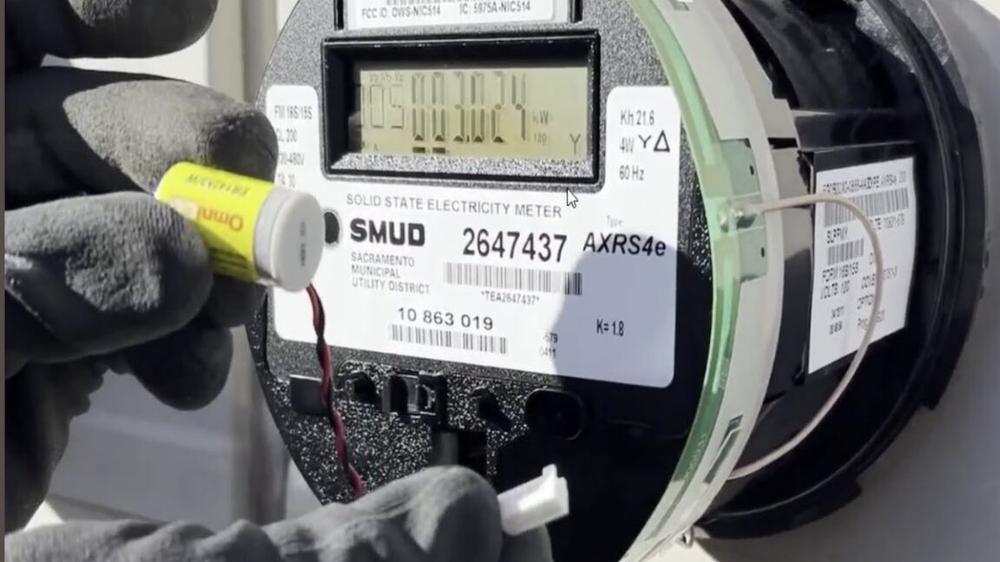In May 2020, Sacramento, California, resident Alfonso Nguyen was alarmed to find two Sacramento County Sheriff’s deputies at his door, accusing him of illegally growing cannabis and demanding entry into his home. When Nguyen refused the search and denied the allegation, one deputy allegedly called him a liar and threatened to arrest him.
That same year, deputies from the same department, with their guns drawn and bullhorns and sirens sounding, fanned out around the home of Brian Decker, another Sacramento resident. The officers forced Decker to walk backward out of his home in only his underwear around 7 am while his neighbors watched. The deputies said that he, too, was under suspicion of illegally growing cannabis.
Invasion of the privacy snatchers
According to a motion the Electronic Frontier Foundation filed in Sacramento Superior Court last week, Nguyen and Decker are only two of more than 33,000 Sacramento-area people who have been flagged to the Sheriff’s department by the Sacramento Municipal Utility District, the electricity provider for the region. SMUD called the customers out for using what it and department investigators said were suspiciously high amounts of electricity indicative of illegal cannabis farming.
The EFF, citing investigator and SMUD records, said the utility unilaterally analyzes customers’ electricity usage in “painstakingly” detailed increments of every 15 minutes. When analysts identify patterns they deem likely signs of illegal grows, they notify Sheriff’s investigators. The EFF said the practice violates privacy protections guaranteed by the federal and California governments and is seeking a court order barring the warrantless disclosures.
“SMUD’s disclosures invade the privacy of customers’ homes,” EFF attorneys wrote in a court document in support of last week’s motion. “The whole exercise is the digital equivalent of a door-to-door search of an entire city. The home lies at the ‘core’ of constitutional privacy protection.”
Contrary to SMUD and sheriff’s investigator claims that the likely illegal grows are accurate, the EFF cited multiple examples where they have been wrong. In Decker’s case, for instance, SMUD analysts allegedly told investigators his electricity usage indicated that “4 to 5 grow lights are being used [at his home] from 7pm to 7am.” In actuality, the EFF said, someone in the home was mining cryptocurrency. Nguyen’s electricity consumption was the result of a spinal injury that requires him to use an electric wheelchair and special HVAC equipment to maintain his body temperature.
SMUD, like most electric utilities, relies on smart meters that wirelessly transmit data about each customer’s power consumption. These reports measure usage in 15-minute intervals that can give clues about the types of appliances drawing power inside each home. The EFF characterizes the practice as a mass surveillance scheme that indiscriminately targets nearly all in the Sacramento area, even when there is no suspicion of wrongdoing.
EFF attorneys wrote:
SMUD uses sophisticated software to analyze smart meter data. The software’s initial purpose was to help SMUD find power theft. But for the last decade, SMUD analysts have actively collaborated with law enforcement—and especially the Sacramento Police Department—by providing lists, opinions, and tips in a hunt for SMUD customers who might be growing cannabis. Specifically, law enforcement sends requests for, and SMUD discloses, lists of all customers in a given zip code that use above a minimum threshold of electricity. Often, these requests span the zip codes for an entire city. One such list included more than 10,000 customers. SMUD analysts then scrutinize the smart meter interval data, going “account by account” in a “painstaking” process, and opine if a customer is a “pattern” user, or speculate about the number of lights a customer might be using to grow cannabis. The Sacramento Police Department requests this data quarterly.
Further raising concerns, in at least two cases, SMUD analysts described flagged customers with the description of “4k [kWh], Asian,” and “multiple Asians have reported there.” The EFF said that from 2020 to 2022, the Sacramento Sheriff’s Department levied penalties of nearly $100 million on owners of properties where cannabis had been found. About 86 percent of those property owners were of Asian descent, the EFF said.
Also contributing to the scope of the dragnet, law enforcement has, over time, lowered the suspicion threshold. In 2014, the consumption was 7,000 kWh per month. In 2023, the threshold was lowered to 2,800 kWh.
Representatives of SMUD and the sheriff’s department didn’t immediately respond to emails seeking comment.

 Apple alerted Iranians to iPhone spyware attacks, say researchers
Apple alerted Iranians to iPhone spyware attacks, say researchers